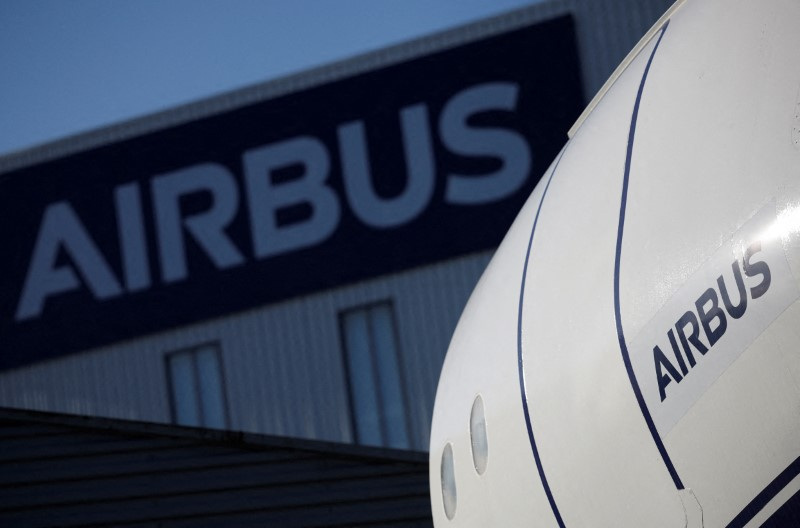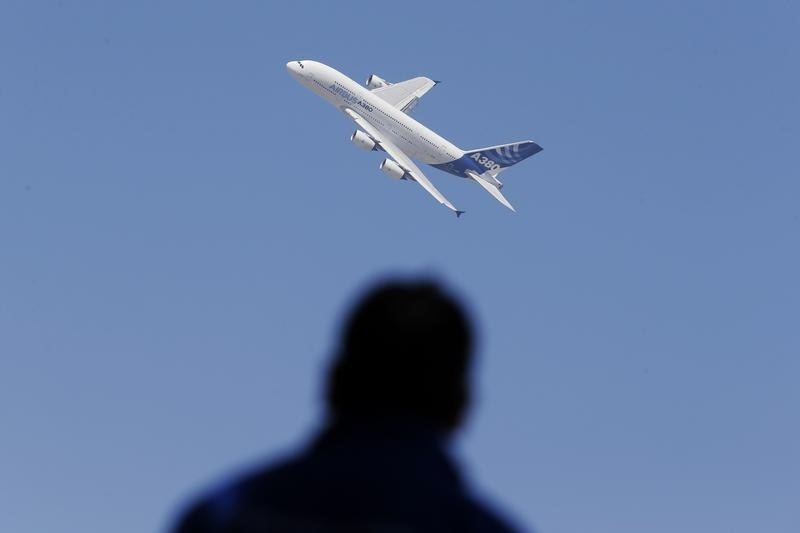By Tim Hepher
PARIS (Reuters) -Airbus deliveries accelerated sharply to more than 80 aircraft in November as the planemaker recovers from a summer lull and sets its sights on end-year targets that had previously seemed out of reach, industry sources said.
Airbus is officially targeting “around 770” 2024 deliveries. Few analysts expect it to reach that headline figure after supply snags, but many say the wording gives it flexibility to deliver as few as 750 jets, which looks increasingly feasible.
After a mid-year profit warning driven in part by a shortfall in engine supplies, deliveries spiked higher in November after engine maker CFM and Airbus reached a deal over short-term engine supplies, first reported by Reuters last week.
Industry sources said deliveries jumped at least 25% in November from the same month last year to top the 80 mark, bringing deliveries so far this year to 640 jets and leaving some 110 to go. In December last year, Airbus delivered 112 jets.
If confirmed, it would be the highest November tally since 2018 when Airbus delivered 89 jets.
Jefferies analyst Chloe Lemarie predicted 85 deliveries in November. “While the (full-year) 770 may now be out of reach, we still see…765 as achievable,” she said in a note to investors.
Others cautioned Airbus would need to keep up strong momentum to reach its end-year target for deliveries, which are closely related to revenues and cash generation.
“Last week looks to be the change needed to get close to their target,” said Rob Morris, head of global consultancy at UK-based Cirium Ascend.
“The only question I have now is: have they rinsed their stock or can they keep averaging four per day for the next 30 days?”
SUPPLY PENDULUM
Jet engine maker CFM, co-owned by GE Aerospace and Safran (EPA:), agreed last month to divert some engines to Airbus as the planemaker tries to catch up on previous delivery delays, Reuters reported last week.
The agreement follows tense negotiations over the allocation of engines between new assembly lines and the repair shops where airlines carry out maintenance to keep existing planes flying.
Speaking to AFP in Belgium last week, Safran CEO Olivier Andries confirmed that CFM had prioritised Airbus over airlines on a temporary basis to feed the Airbus production lines with engines in time to secure extra aircraft deliveries in 2024.
The pendulum is expected to swing back towards the aftermarket to coincide with January, when Airbus slows down.
Some analysts have voiced concerns that the switch in engines could dent margins for the engine companies, since engine makers make more of their income out of high-margin activities in the aftermarket than in equipping new aircraft.

But Bernstein analyst Douglas Harned said in a note that CFM could flip engine supplies to Airbus planned for November and December in order to help the planemaker prepare for a busy end to the year while meeting its own targets for airline sales.
CFM has said it is working both to meet demand from customers and to maximise fleet utilisation for airlines.

